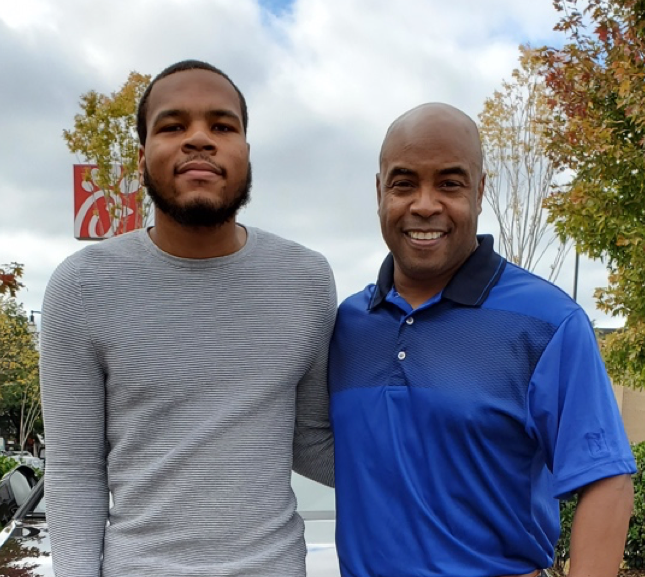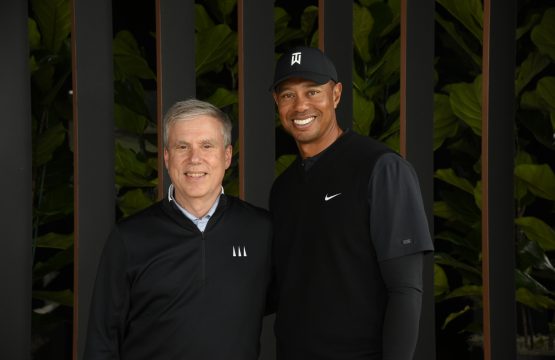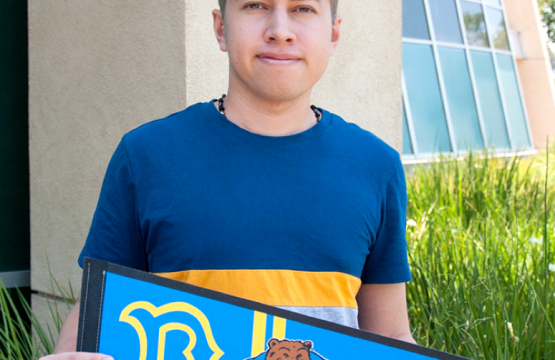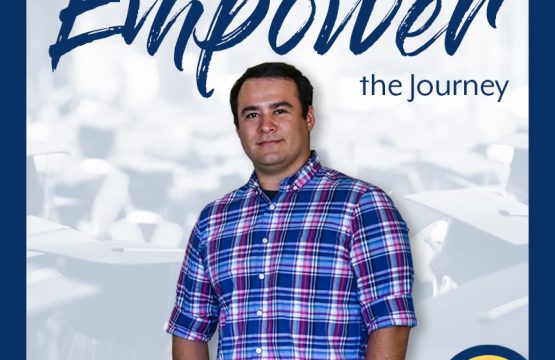Mentor Spotlight: General Trent Edwards shares how mentors learn while leading

From Traip Academy High School in Kittery, Maine to the United States Pentagon in Arlington, VA, General Trent Edwards has had many life experiences. In his latest appointment as an Earl Woods Scholar Mentor, he was matched with Julian Smith, a freshman at Clark Atlanta University, and has already begun sharing special moments, learning from his mentee’s perspective and helping him develop healthy habits on his road to college and career success.
General Edwards recently took a moment to reflect on his experience thus far, share the value of mentoring and provide tips for building strong relationships as we celebrate National Mentoring Month.
TGR Foundation: What have you gained by being a mentor?
General Trent Edwards: Being a mentor to Julian has been very special for me. I have gained a first-hand appreciation for what it means to be a member of Gen Z – to understand how they think, their approach to education, life and social issues. Julian has taught me that Gen Z and certainly Julian himself, are socially conscious and engaged in understanding the importance of political awareness and civic responsibility and engagement. I get excited hearing Julian talk about community engagement and social change.
TGRF: What do you think Julian has gained from the relationship?
GTE: I believe Julian has gained a sense of the importance of time management and keeping scheduled appointments. When we began our mentor-mentee relationship, we both agreed to weekly telephone calls but experienced some challenges in keeping the appointed schedule. We spoke about the importance of time and keeping scheduled appointments once you join the workforce and why developing healthy commitment habits now is important.
TGRF: What is the value and benefit of having a mentor?
GTE: Once you’ve established trust between the mentor and mentee, the value of the relationship is learning by sharing experiences. Ultimately, you want to connect with each other. If you are the mentee, you want to know that you have someone in your corner that you can go to for advice without judgment. It doesn’t mean you agree on everything, but it gives the mentee access to someone who has a similar experience base. Although, a different experience base can also be helpful when trust exists. In my experience, the best mentor relationships entail the mentor and mentee working together to establish goals for the mentee and then talk about them.
TGRF: Did you have a mentor, formal or informal, growing up?
GTE: Yes. I grew up in Kittery, Maine and attended Traip Academy High School. I played sports including football, track and wrestling. There wasn’t a lot of racial diversity in Kittery. I was one of a very small group of African Americans who attended the school and lived in the community. I had a track coach named Onil Roy who took an interest in my athletic abilities. Every time he spoke to me, I could see the hope and gleam in his eyes for my success as an athlete and as a person. He had a big, positive influence on me. We stayed in touch over the years, and he shared in my success when I became a General Officer in the Air Force. I made a point to go back home and thank him for supporting and believing in me.
TGRF: Tell us about a special moment you’ve had with Julian since you became his mentor?
GTE: When I became an Earl Woods Scholar Mentor, I did not have a chance to meet Julian in person before he went to Clark Atlanta University. Our initial meeting and conversations were via telephone. My family and I were living in Washington, D.C. and preparing to move to Montgomery, Alabama. We built in extra time during the trip to stop in Atlanta to meet Julian. It was important for my wife, Vanessa and son, Dylan to meet Julian as well. Julian brought along his roommate, Lawrence Hightower. We took them out to lunch and had a great time getting to know each other. There were lots of laughs, advice and conversations about families and life. We all hit it off. It was a special moment.
TGRF: How can mentors build a strong relationship with their mentees?
GTE: Be authentic. Being a mentor doesn’t mean you are perfect so don’t pretend to be. You have more life experience, so be willing to share it; the good and the bad. Be honest; be vulnerable and be available. Being honest and vulnerable will build the trust that allows for both the mentor and mentee to learn from each other; learning is a two-way street and it’s what makes life so interesting.
Redefining what it means to be a champion.



